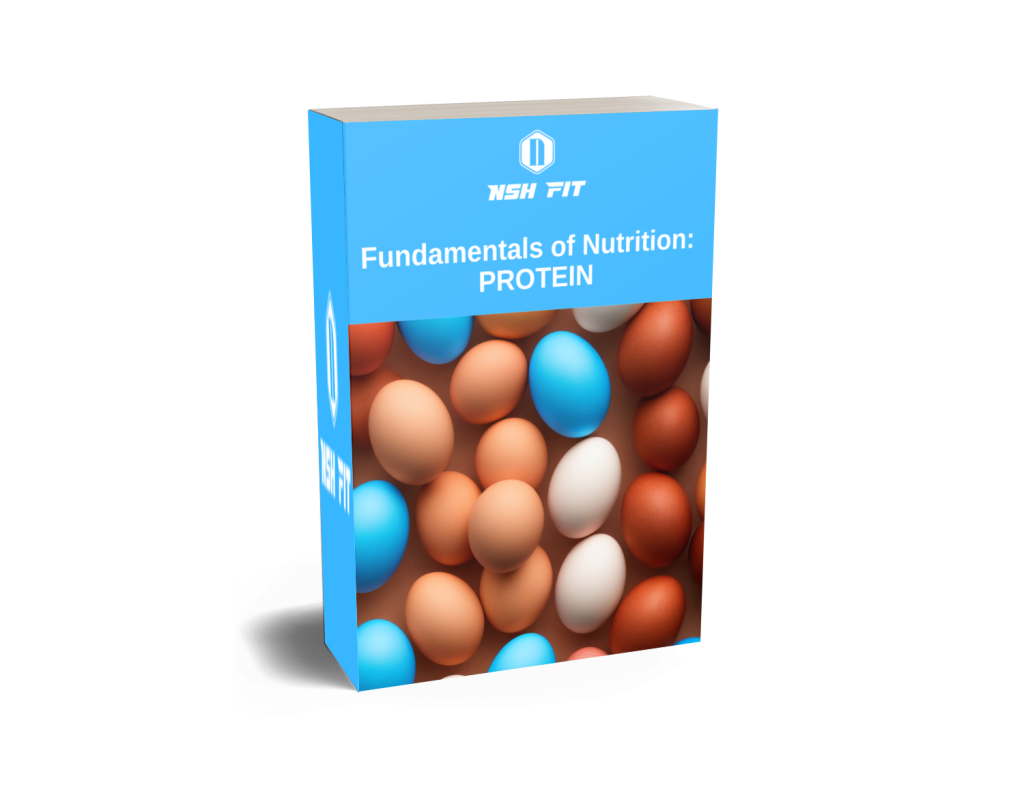Protein is incredibly important, and without it our body composition and health greatly suffer as a result.
This little blog will show you what protein is and how much of it we need for specific goals . It will provide you with a full understanding of this macronutrient.
Proteins are an essential nutrient and can be broken down into 20 building blocks known as amino acids. Out of these 20 amino acids, 9 are considered to be essential as the body cannot synthesize its own, meaning we must obtain these from animal and plant sources. The other 11 aminos can be synthesized by the body, making them non-essential.
Protein Quality
When considering a protein source, one of the most popular methods is to classify the food by its biological value (BV).
The biological value is based on its quantity of the essential amino acids. So a food with a high BV (also known as a complete protein) contains all 9 essential aminos. This is commonly seen in animal and dairy products.
Complete proteins:
- Eggs
- Poultry
- Milk
- Soybeans
- Beef
- Quinoa
Incomplete proteins
- Eggs
- Poultry
- Milk
- Soybeans
- Beef
- Quinoa
The Role of Protein
When we do consume sufficient amounts of high quality and complete proteins, it has a whole host of benefits.
- Proteins provide building materials – amino acids – for growth and repair of body tissues.
- Proteins form vital parts of most body structures, such as skin, nails, hair, membranes, muscles, teeth, bones, organs, ligaments and tendons.
- Proteins facilitate numerous chemical reactions in the body; all enzymes are proteins.
- Some proteins act as chemical messengers, regulating body processes; not all hormones are proteins.
- Proteins assist the body in maintaining its resistance to disease by acting against foreign disease-causing substances.
- Proteins help regulate the quantity of fluids in body compartments.
- Proteins act as buffers, to maintain the normal acid and base concentrations in body fluids.
- Proteins move the required nutrients and other substances into and out of cells and around the body.
- Protein can be used to provide calories (4 calories per gram) to help meet the body’s energy needs.
How much do we need?
The debate still continues on how much protein we need daily, but there appears to be a general agreement that active individuals need a higher intake than sedentary people.
The average intake: For a healthy person of a healthy weight who is mainly sedentary and is not seeking changes in body composition – then an intake of 0.4 – 0.6 grams per pound bodyweight (0,9 – 1,3 grams per kilo bodyweight) is sufficient.
When losing body fat: Having a high protein intake during a calorie deficit is also important, as it is very anabolic, meaning we are more likely to preserve lean body tissue in the process.
When building muscle: The studies that look at muscle mass and protein intake tend to vary from 0.8-1.0+ gram per pound bodyweight, so it’s safe to say a balanced approach would be most beneficial, so around 1g per pound bodyweight (2,2g per kilo bodyweight) is highly effective.
Elderly: The research shows a daily intake of 0.45-0.6 gram per pound bodyweight (0,9 – 1,3 grams per kilo bodyweight). Finally, those recovering from injuries may also benefit from a higher protein diet.
Dangers of a high protein diet
Many people will try and tell us that a high protein diet is bad for us, and that it is linked to cardiovascular disease, dehydration, calcium loss and damaged liver and kidney function. The question that must be asked is – show us the accurate research.
Here’s what you need to know:
- There is no link to protein causing increased risk of coronary heart disease.
- There is no link to protein causing liver or kidney damage in healthy subjects.
- Recent studies show a positive relationship between protein intake and bone health.
Protein sources
Animal sources (1g edible protein per 100g in weight):
- Bluefin Tuna – 29.92g
- Chicken Dark Meat – 28.99g
- Turkey White Meat – 28.48g
- Cooked Salmon – 25.56g
- Lamb Cooked – 24.52g
- Duck – 23.48g
- Pork Chop – 21.91g
- Chicken White Meat – 16.79g
Plant and dairy sources (1g edible protein per 100g in weight):
- Pumpkin Seeds – 32.47g
- Peanut Butter – 25.09g
- Cheddar Cheese – 24.90g
- Peanuts – 23.68g
- Almonds – 22.09g
- Tofu – 17.19g
- Fried Eggs – 15.03g
- Cottage Cheese – 12.93g
- Lentils – 9.50g
- Lima Beans – 7.80g
Want to learn more?
For a LIMITED TIME ONLY:
Download the report for FREE!
(Offer ends May 12, 2023)
References and further reading:
http://www.ncbi.nlm.nih.gov/pubmed/18056791
http://www.ncbi.nlm.nih.gov/pubmed/21775557
http://www.ncbi.nlm.nih.gov/pubmed/24195702
http://www.nal.usda.gov/fnic/DRI/DRI_Energy/energy_full_report.pdf
http://www.ncbi.nlm.nih.gov/pubmed/18448177
http://www.ncbi.nlm.nih.gov/pubmed/8862477
http://www.ncbi.nlm.nih.gov/pubmed/11838888
http://www.ncbi.nlm.nih.gov/pubmed/20565999
http://ajcn.nutrition.org/content/early/2012/01/17/ajcn.111.026328
http://www.jissn.com/content/9/1/42/abstract
http://www.ncbi.nlm.nih.gov/pubmed/22150425
http://www.ncbi.nlm.nih.gov/pubmed/19927027/
http://www.ncbi.nlm.nih.gov/pubmed/17213878
http://www.ncbi.nlm.nih.gov/pubmed/16886097
http://www.jissn.com/content/1/1/45
http://www.ncbi.nlm.nih.gov/pubmed/21102327
http://mikestriathlon.com/nutrition-the-role-of-protein-in-sports-performance/
http://www.lifetime-weightloss.com/blog/2012/8/11/performance-enhancement-part-2
-essentials-of-repair-and-reco.html/






